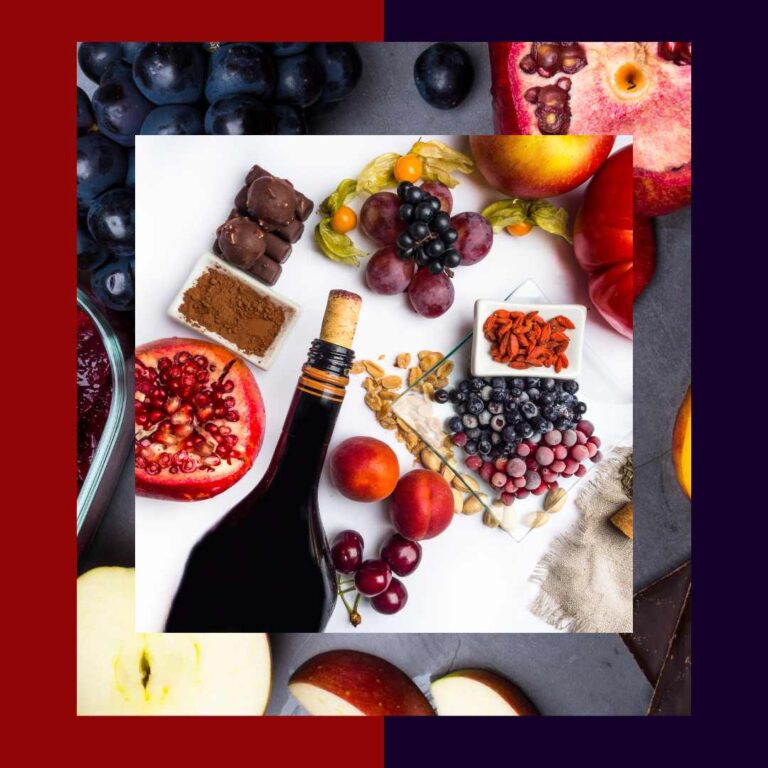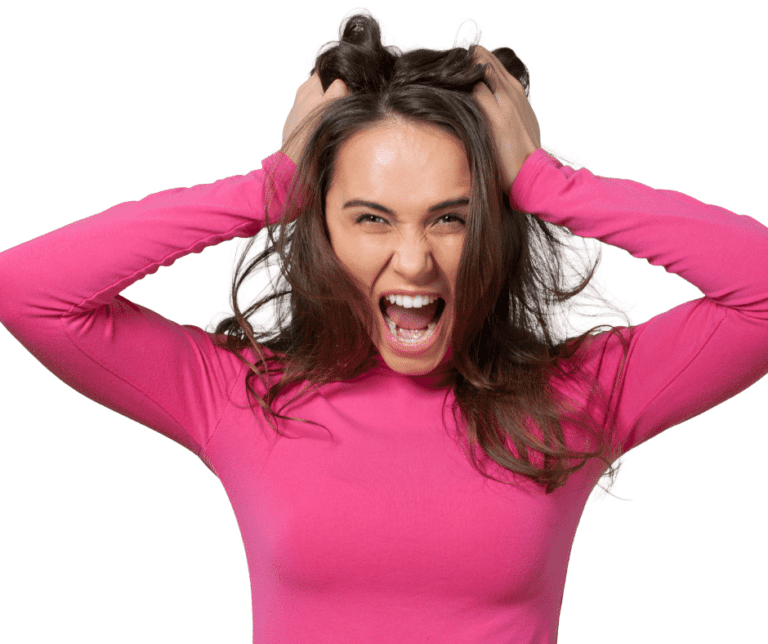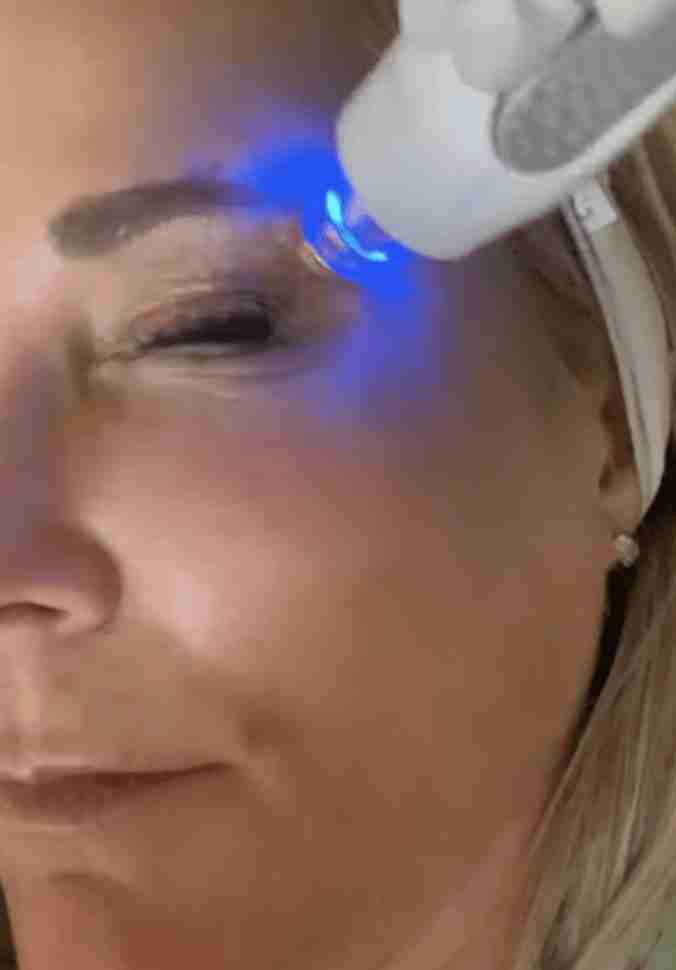How Alcohol Ages Your Skin- Effects and Consequences of drinking
Does Alcohol Age Your Skin? The Effects and Consequences of Drinking on Aging
Do you ever wonder why your skin looks dull and tired after a night out with friends, indulging in a few too many drinks? Drinking alcohol can have a significant impact on the aging process, but how exactly does alcohol age your skin?
In this blog post, we’ll dive deep into the effects of alcohol on your skin, eyes, weight, and mental health, and discuss ways to reverse these aging consequences. So grab a glass of water and let’s start exploring the sobering truth about alcohol and aging.
Short Summary
- Alcohol can negatively impact skin health due to dehydration, inflammation and nutrient depletion.
- Drinking alcohol can lead to visible signs of aging in your eyes & on your skin, as well as weight gain & disrupted sleep patterns.
- Reversing the effects of alcohol requires lifestyle changes and professional help when needed.
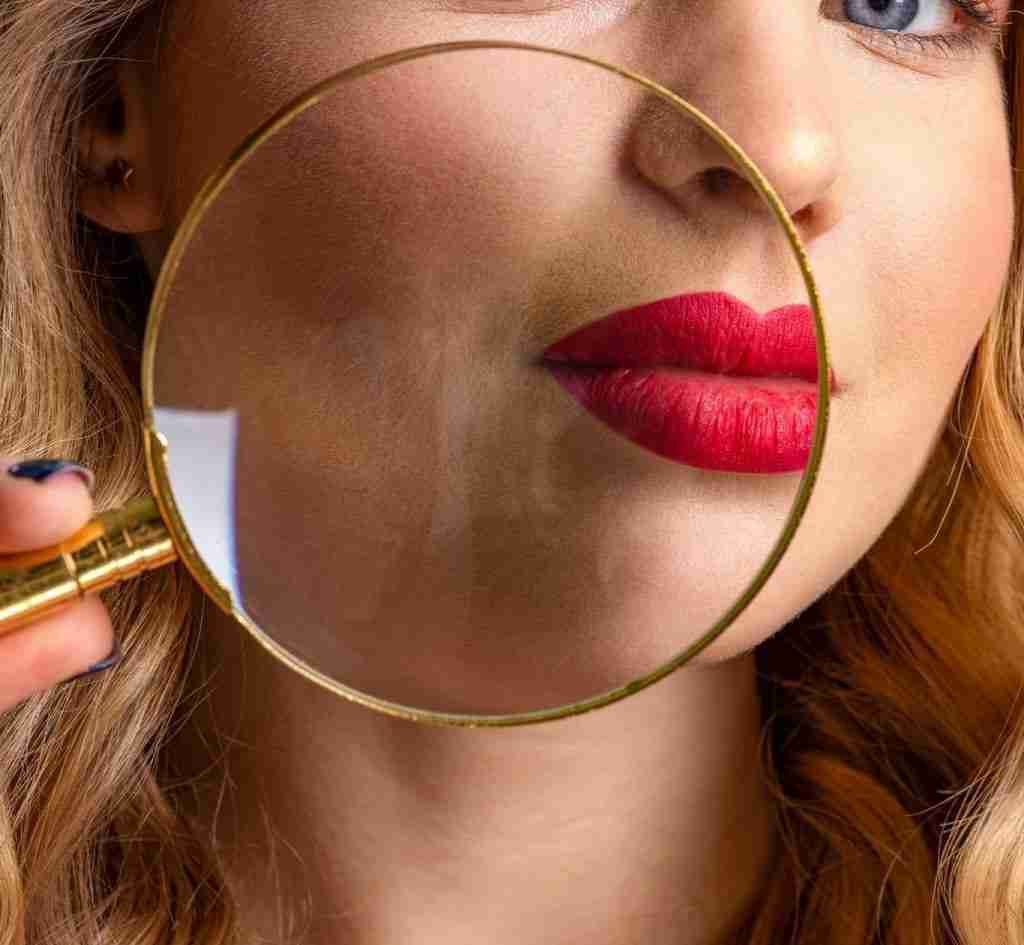
The Impact of Alcohol on Skin Health
We all know that drinking alcohol can lead to some not-so-great side effects, but did you know that it can also wreak havoc on your skin? Alcohol consumption can cause dehydration, inflammation, and nutrient depletion, all of which contribute to the aging process and negatively affect your skin’s health.
By understanding the effects of moderate alcohol consumption, you can make informed decisions about your alcohol intake and potentially slow down your body’s aging process.
Remember that aging starts on the inside (unless we are talking about sun damage.)
1. Dehydration and Wrinkles
You might have noticed that after a night of heavy drinking, your skin feels dry and tight. This is because alcohol dehydrates the body, causing your skin to lose moisture and elasticity. Over time, this can lead to wrinkles and sagging skin, making you look older than you actually are.
Just imagine the damage that can be done if you consistently consume alcohol without replenishing your body’s water levels. So, the next time you reach for an alcoholic beverage, think about how it might be accelerating the formation of wrinkles on your beautiful face. Hydrate girlfriends!
2. Inflammation and Skin Conditions
In addition to dehydration, alcohol can also trigger inflammation in the body, making existing skin conditions like eczema, psoriasis, and rosacea even worse. Inflammation can cause:
- Redness
- Heat
- Swelling
- Discomfort
When left unchecked, it can lead to long-lasting damage to the skin. Chronic inflammation is associated with various skin issues, including redness, acne, and skin sensitivity.
Remember that bottle of red wine you enjoyed last night? It might have been the culprit behind that sudden flare-up of your rosacea. So, if you’re already prone to inflammatory skin conditions, it’s essential to be mindful of your alcohol intake.
3. Nutrient Depletion and Collagen Loss
Your skin relies on essential nutrients to maintain its elasticity and tone, but alcohol consumption can interfere with the absorption of these vital vitamins and minerals. Furthermore, drinking alcohol can deplete collagen levels in the skin, resulting in a loss of elasticity and a dull, sagging appearance.
This collagen loss combined with the dehydration and inflammation caused by alcohol consumption can significantly contribute to the aging process. In other words, that cocktail you’re sipping might taste divine, but it could be robbing your skin of its youthful glow.
4. How Drinking Affects Your Eyes and Blood Vessels
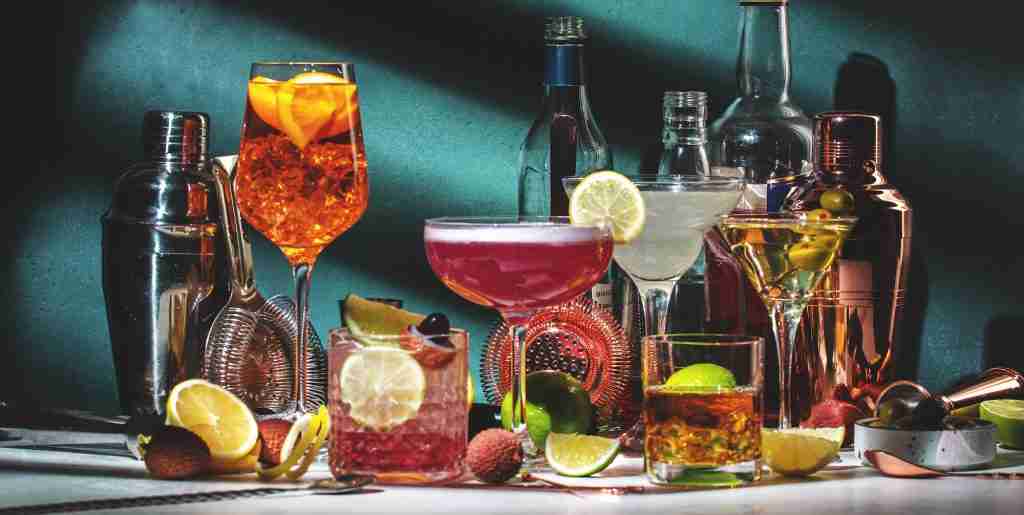
Now that we understand how alcohol affects our skin, let’s explore its impact on our eyes and blood vessels. Alcohol consumption can lead to visible signs of aging in these areas, such as arcus senilis (a gray ring around the cornea) and dilated blood vessels, which result in red spots and spider veins on the skin.
While you might not notice these changes immediately, over time, they can become more apparent and contribute to premature aging.
Eye Health and Arcus Senilis
Have you ever woken up after a night of drinking with red, irritated eyes? Alcohol can have a negative impact on eye health, increasing the risk of developing arcus senilis. This gray ring around the cornea might not seem like a big deal, but it’s a visible sign of aging that can make you look older than you feel.
So, the next time you’re tempted to indulge in one too many drinks, remember that your eyes are also paying the price.
5. Blood Vessel Dilation and Redness
Alcohol’s effects on the blood vessels are another reason to reconsider that extra glass of wine. Drinking alcohol causes blood vessels to dilate, resulting in red spots and spider veins on the skin. Over time, this can lead to a permanently flushed appearance, visible signs of aging, and even high blood pressure.
If you’re already self-conscious about broken capillaries or spider veins, it’s worth considering whether alcohol is exacerbating the problem.
6. Liver Function and Weakened Immune System
The liver plays a crucial role in detoxifying the body. Excessive alcohol consumption can strain the liver, impairing its ability to process toxins effectively. This can lead to a buildup of toxins that may contribute to skin issues and other health problems.
Alcohol consumption can reduce the body’s antioxidant defenses, which help protect the skin from oxidative stress and free radicals. This can accelerate the aging process and increase the risk of skin damage.
Excessive alcohol intake can weaken the immune system, making it harder for the body to combat infections and support overall skin health.
The Relationship Between Alcohol and Weight Gain
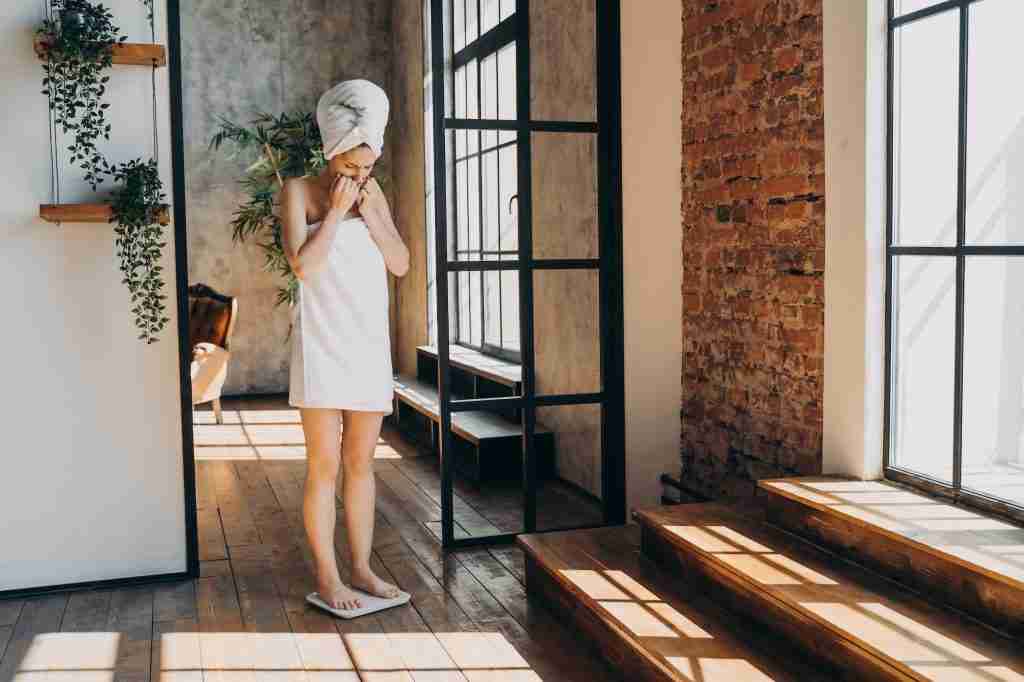
As if the impact on our skin and eyes wasn’t enough, alcohol also plays a sneaky role in weight gain and can even contribute to fatty liver disease. The empty calories found in alcohol can lead to fat storage, and altered eating habits can exacerbate the problem.
So, if you’re wondering why the number on the scale keeps creeping up despite your best efforts to eat healthily and exercise, it might be time to examine your relationship with alcohol.
Empty Calories and Fat Storage
Alcoholic beverages are notorious for being packed with empty calories that provide no nutritional value. Consuming too much alcohol can quickly add up these calories, leading to unwanted weight gain and increased fat storage.
If you’re trying to maintain a healthy weight or even shed a few pounds, it’s crucial to be mindful of the calorie content in your favorite alcoholic drinks and consider cutting back or making healthier choices.
Altered Eating Habits
It’s not just the empty calories in alcohol that contribute to weight gain; it’s also the effect it has on our eating habits. Alcohol consumption can lead to increased cravings for unhealthy, high-calorie foods, making it difficult to stick to a balanced diet.
Additionally, when your body is busy processing alcohol, it puts other essential functions, like nutrient absorption and fat burning, on hold. If you’re struggling to maintain a healthy weight, it might be time to reevaluate your alcohol intake and its influence on your eating habits.
Alcohol’s Influence on Sleep and Mental Health
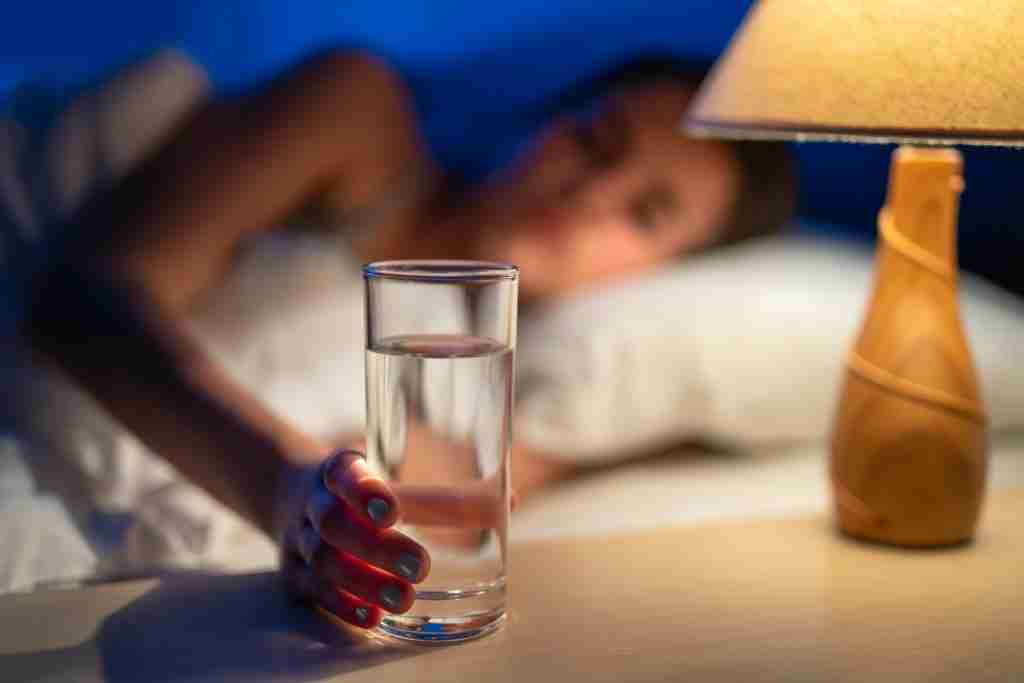
You might think that nightcap helps you sleep better, but the truth is, alcohol consumption can disrupt your sleep patterns and negatively affect your mental health. These factors not only contribute to the aging process, but can also have lasting consequences on your overall well-being.
When you don’t get enough sleep, your skin suffers along with the rest of your body. Disrupted sleep doesn’t allow your body to rejuvenate your skin. Let’s delve deeper into the ways alcohol interferes with sleep, beauty and mental health.
Alcohol can disrupt sleep patterns and reduce the quality of sleep. Poor sleep is linked to skin issues like dark circles, puffiness, and a dull complexion.
Disrupted Sleep Patterns
Alcohol might help you fall asleep faster, but it can interfere with the quality of your sleep, leading to:
- fatigue
- a tired appearance
- grogginess
- lack of focus
- decreased productivity
- mood swings
Consistently poor sleep can also accelerate the aging process, making it even more important to consider the role of alcohol in your bedtime routine.
Alcohol can be a tempting way to help you drift off to sleep, but it’s not.
Mental Health Consequences
Excessive drinking, also known as alcohol abuse, doesn’t just disrupt sleep, it can also have significant consequences for your mental health. Alcohol can cause depression, impair memory and learning, and even worsen existing mental illnesses.
Moreover, heavy alcohol use can increase the likelihood of experiencing traumatic events, further impacting mental health and potentially leading to alcohol related brain damage. In fact, these consequences are often associated with alcohol use disorder.
If you’re struggling with your mental health, it’s essential to evaluate your alcohol consumption and consider seeking professional help if necessary.
Reversing the Effects of Alcohol on Aging
While the effects of alcohol on aging might seem daunting, there are ways to reverse some of these consequences. By making lifestyle changes and seeking professional help when needed, you can improve your overall health and appearance, turning back the clock on how alcohol ages you.
Let’s explore the steps you can take to rejuvenate your body and mind. Check out our other blog posts about what you can do to help your skin age better with products, treatments , nutrients and wellness.
Lifestyle Changes
One of the most effective ways to reverse the aging effects of alcohol is by adopting a healthier lifestyle. This includes:
- Proper hydration
- A balanced diet
- Regular exercise
- Stress management techniques
By taking care of your body and providing it with the essential nutrients it needs, you can help repair some of the damage caused by alcohol and regain a more youthful appearance.
Seeking Professional Help
If you’re struggling with an alcohol addiction or a mental health issue related to alcohol consumption, it’s important to seek professional help. Rehab facilities, support groups, and therapy can provide invaluable assistance in overcoming alcohol addiction and improving your overall health and appearance.
By addressing the root of the problem and working towards a healthier lifestyle, you can begin to reverse the aging effects of alcohol and enjoy a more vibrant, youthful appearance.
Summary
In conclusion, alcohol consumption can have significant effects on the aging process, impacting our skin, eyes, weight, sleep, and mental health. However, by making lifestyle changes and seeking professional help when needed, it’s possible to reverse some of these aging effects and rejuvenate our bodies and minds. So, the next time you reach for that glass of wine or cocktail, consider the impact it might have on your appearance and overall health. Choose wisely and embrace the journey towards a healthier, more youthful you.
Frequently Asked Questions
How fast does alcohol age your skin?
Drinking alcohol can age your skin 10 years more than not drinking, due to dehydration damage caused by alcohol consumption.
Dehydration damage is caused by the alcohol itself, not the other ingredients in drinks like sugar or caffeine. This damage can be seen in the form of wrinkles, dryness, and sagging skin.
Does alcohol permanently age your skin?
Excessive drinking can cause wrinkles and can deplete the skin’s collagen levels, leading to an aged appearance. So yes, alcohol can permanently age your skin.
Does alcohol cause loss of collagen?
Yes, alcohol can cause a loss of collagen. Excessive drinking depletes vitamins, including vitamin A, resulting in collagen levels plummeting and the skin losing elasticity.
Alcohol also accelerates the ageing process by decreasing collagen production and the structural integrity of the skin.
How does alcohol disrupt sleep patterns?
Alcohol might help you fall asleep faster, but it interrupts your sleep cycle and overall quality, leading to fatigue, grogginess, and a tired appearance.
These effects can be especially pronounced if you drink alcohol close to bedtime. Drinking alcohol can also lead to dehydration, which can further disrupt your sleep.
How can I reverse the aging effects of alcohol?
Reverse the aging effects of alcohol by adopting a healthier lifestyle including proper hydration, a balanced diet, and regular exercise.
Seeking professional help when needed can also be beneficial.



